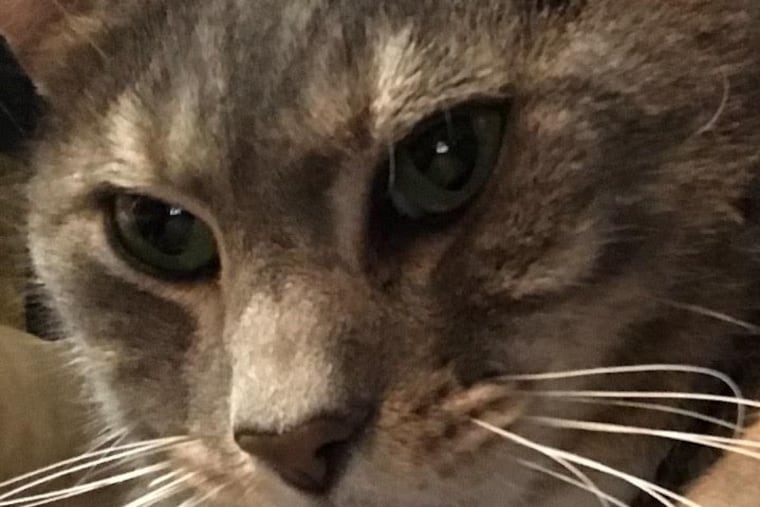Medical mystery: What caused cat’s vomiting, sudden weight loss?
At house call for a relatively new patient, a 10-year-old cat named Sunny, his owner said he had been vomiting and was concerned he was losing weight.

I recently made a house call for a relatively new patient, a 10-year-old cat named Sunny, whose owner said he had been vomiting and was losing weight.
Sunny’s weight the winter before was 17 pounds. In six months, he had lost 4 pounds, which is an alarming weight loss for a cat. His owner described hearing him vomit but had not actually witnessed the vomiting episodes. His owner also explained that this had occurred in his past.
Sunny’s exam was unremarkable, but I wanted to do blood work, considering his age and symptoms. It came back normal, with the exception of a very mild increase in white blood cells. Sometimes we see this as an indicator of stress, and my house visit could certainly cause stress. I treated him with an anti-nausea medication.
During a follow-up two weeks later, his owner noted more weight loss. An abdominal ultrasound was planned to determine whether there were abnormalities of internal organs that might not show up on blood work.
Days before the procedure, his owner called me and said that now Sunny was coughing and wheezing. She explained that the “vomiting” sounds that she thought were hair balls could have been coughing sounds all along. I returned for another house call and noted that he did have an audible wheeze on the exhale. He had a mild inspiratory rattle and I heard a “crackle” in one area of his chest with my stethoscope. His breathing rate was elevated, as was his heart rate. He also had a low-grade fever.
Upon further discussion, his owner realized that these symptoms had a seasonality to them, occurring each spring.
Solution
Given his seasonal history of symptoms, and the progression of his symptoms to an audible wheeze, I diagnosed Sunny with asthma. I suspected he had a version of this for years.
I recommended chest radiographs to confirm my suspicion and make sure that his lungs were not in worse shape than they sounded, but his owner declined, in large part because the stress of visiting a hospital would be too great for the already nervous cat.
While symptoms are exacerbated in certain seasons, asthma is a lifelong, generally intermittent disease. The average age of diagnosis is 5½ years. It is caused by a reaction to allergens, such as tree and grasses, and dust mites, some of which are seasonally present in the cat’s environment.
I persuaded Sunny’s owner to a start a long-term course of treatment, which would help better manage his asthma. Medical therapy involves bronchodilators to help open the airways, and steroids (glucocorticoids) to decrease the airway inflammation.
Environmental modifications — using air purifiers, vacuuming often and controlling dust — can also help alleviate symptoms.
I treated Sunny with steroids and antibiotics, both of which I gave as an injection, as he was not as cooperative with oral medications.
Sunny made a quick recovery. His appetite improved, and at his recheck examination, he had gained three pounds in five weeks.
Once Sunny was stable, I convinced his owner to teach him to become accustomed to an inhaler for cats, called an Aerokat. Systemic treatment with steroids is not ideal, and can cause diabetes, particularly if needed on a chronic basis. That’s why it is preferable to have the medication dispensed directly to the lungs in a smaller, more targeted dose.
Most cats can get used to the Aerokat by being given treats and other forms of positive reinforcement, while having it held over their nose and mouth, in progressively longer periods of time. The goal is for cats to endure the Aerokat for six breaths, the time it takes to dispense a dose of inhaler, sprayed into the face mask. Luckily, Sunny became accustomed to it, and he continues to do well.
Dawn Filos is a veterinarian and the owner of Bucks Mercer Mobile Vet. For more information, visit drdawnthepetvet.com.